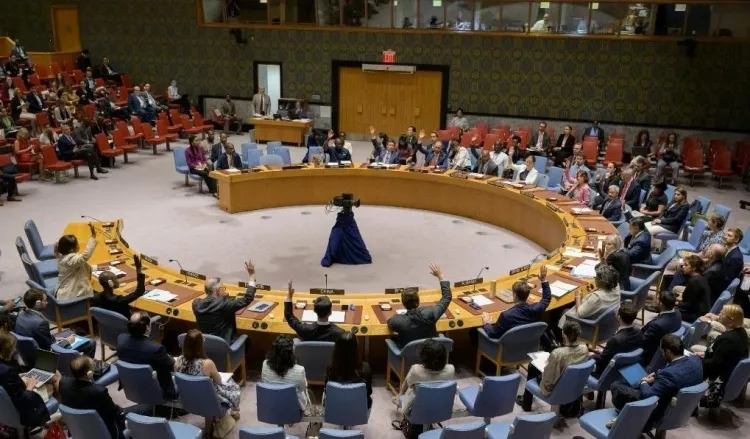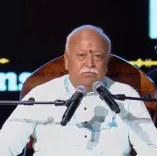Why Is Pakistan Raising River Issues While UNSC Discusses Maritime Security?

Synopsis
Key Takeaways
- UNSC's focus on maritime security amid regional tensions.
- Pakistan's fixation on India diverts discussions.
- Indus Water Treaty suspended after terrorist attacks.
- IORA's exclusion of Pakistan highlights geopolitical dynamics.
- Ongoing regional instability impacts security frameworks.
United Nations, May 21 (NationPress) While the Security Council engaged in discussions about maritime security and voiced concerns over sea terrorism, Pakistan attempted to divert attention to a river issue, specifically the Indus water.
This aligns with Islamabad’s ongoing fixation on India-related matters, which often creates a scenario reminiscent of a theatre of the absurd.
Without explicitly naming India, Pakistan’s Permanent Representative, Asim Iftikhar Ahmad, referred to it as “one major country,” alleging that it exhibited a troubling tendency to usurp and weaponise shared natural resources, including transboundary rivers, in a blatant violation of treaty obligations and the principles of good neighbourliness.
Following a massacre of 26 individuals in Pahalgam last month by the terrorist group The Resistance Front, which is based in and supported by Pakistan, India suspended the Indus Water Treaty.
Reacting to this, Ahmad claimed that India was “leveraging geography” to harm Pakistan, the lower riparian state.
By employing innuendo instead of direct references, he aimed to prevent India from exercising its right of reply to counter these claims.
India’s Permanent Representative, P. Harish, chose to disregard Ahmad's comments during the session.
Ahmad expressed dissatisfaction over Pakistan’s exclusion from the Indian Ocean Rim Association (IORA), a coalition of 23 nations focused on maritime cooperation and a strong stance against terrorism.
The “coercive diplomacy” of “one major country” has resulted in the systematic exclusion of neighboring states from regional maritime security frameworks, he lamented.
India initiated the establishment of the IORA and opposes Pakistan’s membership due to its links to terrorism. Furthermore, Ahmad criticized the so-called “aggressive naval expansion” by the “one major country,” noting that Pakistan cannot afford an aircraft carrier and relies on military assistance from China and Turkey.









